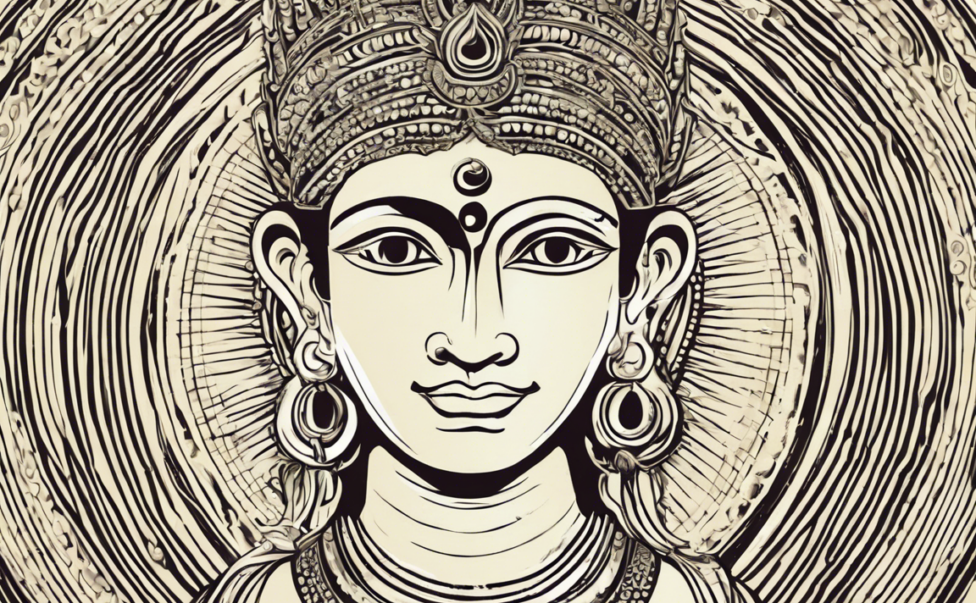The Divine Wisdom of Vishnu Bhagwan: A Guide to Spiritual Enlightenment
Among the pantheon of Hindu deities, Lord Vishnu is revered as the preserver and protector of the universe. His divine wisdom, as depicted in the sacred texts of Hinduism, offers valuable insights that can guide individuals on their path to spiritual enlightenment. In this article, we will explore the profound teachings of Vishnu Bhagwan and how they can inspire us to lead a more fulfilling and meaningful life.
The Manifestations of Vishnu
Lord Vishnu is often depicted with four arms holding a conch shell, a discus, a mace, and a lotus flower. These symbols represent his divine attributes of protection, sustenance, power, and purity. It is believed that Vishnu incarnates on Earth in times of crisis to restore cosmic order and guide humanity back to the righteous path. The ten avatars of Vishnu, known as the Dashavatara, illustrate his diverse manifestations and their role in upholding dharma (righteousness).
The Importance of Dharma
Central to Vishnu’s teachings is the concept of dharma, which refers to the moral and ethical duties that govern one’s conduct in the world. Vishnu emphasizes the importance of living in harmony with the cosmic order and upholding righteousness in all aspects of life. By following the principles of dharma, one can cultivate inner peace, integrity, and compassion towards all beings.
The Bhagavad Gita
One of the most revered texts in Hindu philosophy, the Bhagavad Gita, is a dialogue between Lord Krishna (an incarnation of Vishnu) and the warrior prince Arjuna on the battlefield of Kurukshetra. In this scripture, Vishnu imparts timeless wisdom on duty, righteousness, and devotion, offering spiritual guidance on navigating life’s challenges with equanimity and grace.
Vishnu’s Teachings on Devotion and Surrender
Vishnu encourages his devotees to cultivate unwavering faith and surrender to the divine will. By surrendering our ego and desires to Vishnu, we can transcend worldly attachments and connect with the higher self. Through bhakti (devotion) practices such as chanting mantras, singing hymns, and performing rituals, one can deepen their spiritual connection with Vishnu and experience profound inner transformation.
The Power of Vishnu’s Names
In Hindu tradition, chanting the names of God, particularly the Vishnu Sahasranama (thousand names of Vishnu), is considered a powerful spiritual practice that purifies the mind and invokes divine blessings. Each name of Vishnu carries profound significance and attributes, offering devotees a pathway to spiritual awakening and enlightenment.
The Path to Liberation
According to Vishnu’s teachings, the ultimate goal of human life is to attain moksha, liberation from the cycle of birth and death. By following the path of righteousness, practicing selfless service (seva), cultivating spiritual knowledge, and surrendering to the divine will, one can transcend the limitations of the ego and realize the eternal essence of the self.
Vishnu’s Compassionate Nature
Vishnu is often portrayed as a compassionate and merciful deity who protects his devotees from harm and grants them boons and blessings. By invoking Vishnu’s grace through sincere prayers and offerings, one can receive divine protection, guidance, and support on the spiritual journey towards self-realization.
Frequently Asked Questions (FAQs)
1. What is the significance of Lord Vishnu’s avatars?
Vishnu’s avatars represent his incarnations on Earth to restore balance and righteousness. Each avatar serves a specific purpose, such as the preservation of dharma, the destruction of evil forces, and the protection of the cosmos.
2. How can one connect with Lord Vishnu on a personal level?
Devotees can establish a personal connection with Vishnu through daily prayers, meditation, and devotional practices. By chanting Vishnu’s names, reading sacred texts, and performing rituals with sincerity and devotion, one can deepen their spiritual bond with the divine.
3. What role does karma play in Vishnu’s teachings?
Karma, the law of cause and effect, is central to Vishnu’s teachings on righteousness and ethical conduct. By understanding the karmic consequences of our actions and striving to act in accordance with dharma, one can purify their karma and progress towards spiritual evolution.
4. How does Vishnu inspire compassion and service towards others?
Vishnu teaches that selfless service (seva) and compassion towards all beings are essential virtues on the spiritual path. By serving others with kindness, empathy, and generosity, one can cultivate a spirit of unity, love, and harmony in the world.
5. What is the significance of Vishnu’s symbols and attributes?
Vishnu’s symbols, such as the conch shell, discus, mace, and lotus flower, represent his divine qualities of protection, power, and purity. Each symbol carries a symbolic meaning that reflects Vishnu’s role as the preserver and sustainer of the universe.
6. How does Vishnu’s teachings on devotion and surrender lead to spiritual liberation?
Devotion (bhakti) and surrender to Vishnu enable individuals to transcend the ego and connect with the higher self. By cultivating a deep sense of surrender and offering all actions to the divine, one can attain spiritual liberation and merge with the eternal essence of Vishnu.
7. What are some practical ways to incorporate Vishnu’s teachings into daily life?
Practical ways to embody Vishnu’s teachings include practicing mindfulness, showing kindness to others, living with integrity and honesty, cultivating gratitude, and seeking spiritual knowledge through study and reflection.
In conclusion, the divine wisdom of Vishnu Bhagwan offers a profound spiritual roadmap for seekers aspiring towards enlightenment and liberation. By embracing the teachings of dharma, devotion, and surrender, one can awaken to the eternal truths of the self and experience the boundless grace and compassion of Lord Vishnu in every moment of life.

